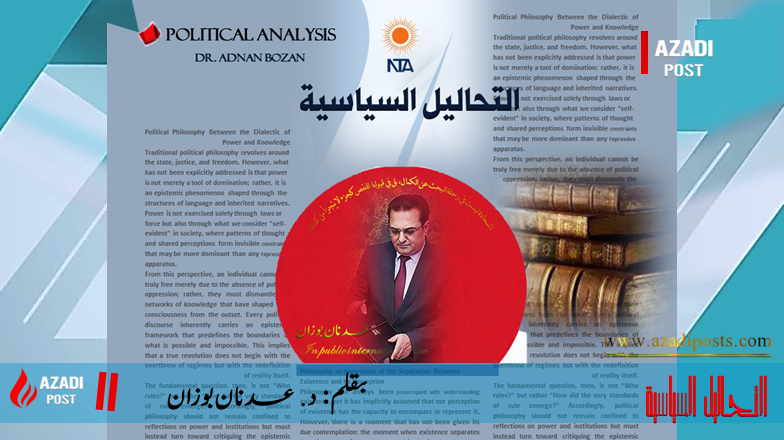The Transitional Authority and the Elections of the Syrian People's Assembly: A Legal – Political Approach
- Super User
- التحاليل السياسية
- Hits: 3715

By: Dr. Adnan Bouzan
The transitional authority is one of the political–legal phenomena associated with exceptional phases that states experience following the collapse of regimes, as a result of wars and revolutions, or due to internal and international agreements. Its legal nature falls within the framework of a de facto authority, as it usually does not rely on full constitutional legitimacy (de jure authority). Rather, it is tasked with temporarily managing state affairs and creating the conditions necessary for transition to a stable democratic system.
From this perspective arises a central question: Does a transitional authority have the right to elect or appoint members of the Syrian People's Assembly, particularly under the current circumstances marked by the fragmentation of Syrian political geography and the fact that large areas are outside the control of Damascus?
The Issue
The core of the issue lies in the contradiction between the principle of popular sovereignty, which requires that representatives be elected through free and direct voting, and the nature of a temporary transitional authority, which lacks comprehensive representative legitimacy. This contradiction becomes more complex in the Syrian case, where the central authority has lost control over large parts of the country, making any electoral process under these conditions legally and politically incomplete.
Section One: The Legal Nature of the Transitional Authority
By its nature, a transitional authority is neither a fully-fledged legislative nor executive institution. It is a temporary entity that fulfills two main functions:
Temporarily managing state affairs and preventing political vacuums.
Creating the legal and constitutional environment for holding free general elections that restore legitimacy to constitutional institutions.
Accordingly, this authority does not have the power to deprive the people of their right to elect their representatives, as this right is anchored in the principle of popular sovereignty enshrined in modern constitutional doctrine.
Section Two: The Transitional Authority and the Establishment of Temporary Legislative Bodies
Under certain circumstances, a transitional authority may need to establish temporary legislative bodies or "constituent councils" to issue constitutional declarations or draft a new constitution in agreement with all parties and components, rather than unilaterally. However, these councils differ fundamentally from the People's Assembly in constitutional terms because:
They do not derive their legitimacy from direct general elections.
Their powers are limited and temporary.
Their primary function is foundational rather than permanent legislative.
Section Three: The Syrian Reality and Its Implications for Legitimacy
The Syrian case represents an extremely complex model, as the political geography today is divided among multiple and disparate authorities:
The Syrian coast: subject to specific political and military influence and loyalty.
Al-Suwayda Governorate: largely outside Damascus' control, exercising a form of self-administration.
The Euphrates region (East Syria): under a civil–military self-administration, effectively independent of the central regime.
In light of this geographical and political fragmentation, any new transitional authority in Damascus does not have the right or practical ability to elect or appoint a People's Assembly that represents all Syrians. Any attempt of this nature would lack legitimacy, as it would be confined to limited areas of influence and fail to reflect comprehensive national representation.
Section Four: The Political–Legal Dimension of the Transitional Process
If a transitional authority proceeds to elect or appoint the People's Assembly, it will result in:
Violating the principle of separation of powers.
Depriving the people of their right to political representation.
Creating an internal and external legitimacy crisis that could undermine the entire transitional phase.
The proper role of a transitional authority is:
Supervising the organization of free and fair general elections under local and international oversight.
Ensuring participation of all Syrian components and regions in the electoral process.
Establishing a constitutional environment that restores recognition and legitimacy to representative institutions.
Conclusion
Based on the preceding analysis, it can be affirmed that no Syrian transitional authority possesses the legal or political right to elect or appoint members of the People's Assembly, as such actions contravene the principle of popular sovereignty and undermine the general will. This conclusion is reinforced by the current Syrian reality, where Damascus lacks full control over national geography (the coast, Al-Suwayda, and the Euphrates region).
Consequently, the mandate of any transitional authority should be limited to managing the interim phase and preparing the conditions for nationwide elections that reflect the unity of the Syrian people, their true representation, and pave the way for a stable and legitimate constitutional framework


